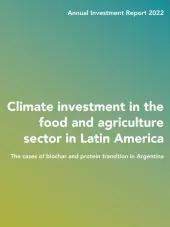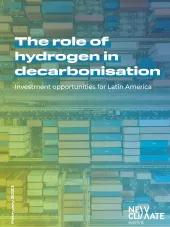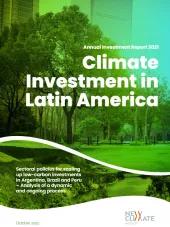The project is funded by the International Climate Initiative (IKI) of the German government and implemented by SouthSouthNorth (lead), NewClimate Institute and local partner institutions in the target countries Brazil (Federal University of Rio de Janeiro/COPPE), Argentina (Fundacion Torcuato Di Tella) and Peru (Libelula).
The aim of the project is to create the enabling conditions to make finance flows consistent with low-carbon development pathways in the three Latin American countries and to create an improved policy and regulatory framework to mobilise the investments needed to achieve the long-term goals of the Paris Agreement. In order to decarbonise countries’ investment portfolios, the project identifies necessary changes and potential improvements to the current policy and regulatory framework (Output 1) and develops strategic low-carbon sector investment portfolios and plans (Output 2) that are based on public-private multi-stakeholder dialogues. The multi-stakeholder groups benefit from regional communities of practice that are set-up under the project to exchange experiences, knowledge and opportunities for climate investments and to promote peer-to-peer learning (Output 3). With the aim of improving the cost-efficiency and effectiveness of the decarbonisation of investment portfolios in the region and globally, the project generates an evidence base, supports peer-to-peer learning, and systematically and effectively shares lessons emerging from the three partner countries (Output 4).
Under Output 4, NewClimate leads the development of a series of three Annual Investment Reports looking into investments needed to meet the climate mitigation objectives of the Paris Agreement in Latin America and the Caribbean (LAC). The report series focuses on private sector investment, and public policy instruments that can incentivise it, as private sector finance will need to be significantly scaled up to meet the investment needs of a transition to net zero emissions. Each of the three reports focuses on a different theme:
- The first report focuses on the policy landscape needed to enable a transition to net zero emissions, identifying key policies at a sectoral and national level to support investments towards decarbonisation in Argentina, Brazil, and Peru. It also provides a brief description of the current general investment environment and analyses factors that influence international climate finance flows.
- The second report focuses on the agriculture and food sector, analysing the status of the sector’s alignment with the objectives of the Paris Agreement and identifying investment opportunities that have the potential for transformational change to net zero emissions.
- The third edition focuses on investment opportunities in green hydrogen, analysing hydrogen’s role in achieving the objectives of the Paris Agreement and identifying investment opportunities that have the potential for transformational change to net zero emissions.
The links to the reports can be found below under ‘Publications’








